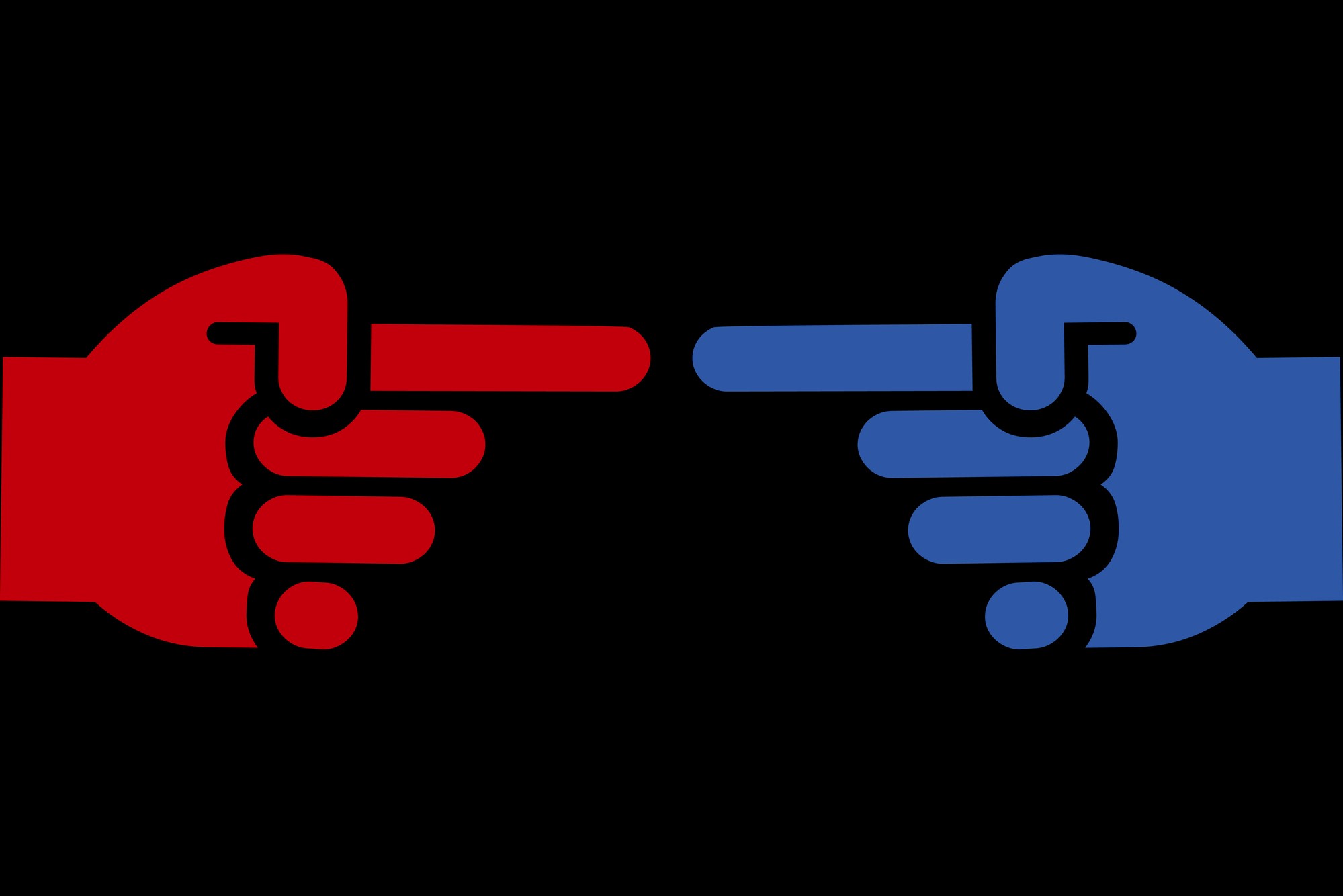The Moral and Linguistic Contours of Insults

Thanks to Rep. Jasmine Crockett (D-TX), we can update a philosophical joke used to illustrate the use-mention distinction. For those unfamiliar, the use-mention distinction is a way to distinguish when a term appears in a sentence and refers to some object, typically its meaning, versus when the term that appears in the sentence refers to its appearance. As Cappelen et. al. point out there is a difference in the way the term shared in the following sentences function:
D1. Jim went to Paris.
D2. “Jim” has three letters.
In D1., “Jim” is being used and refers to a person, possibly even me. That reference helps establish the truth-value we assign to the statement. So, if “Jim” refers to me, then the sentence is false; if it refers to some other person named Jim, who just returned from France, then then the sentence is true. In D2., “Jim” is being mentioned and in doing so the reference of “Jim” just is the term “Jim,” not any object external to the sentence.
So, what is the joke that can now be updated?
One time at a golf tournament, a famous golfer hit a ball into the deep rough. Hoping to be allowed to pick up the ball and drop it into a more favorable spot, the golfer calls an official over and asks for a ruling. The official denies the golfer the opportunity to pick up and drop the ball without penalty, clearly frustrating the golfer who replies as follows: “Just to be clear, if I were now to say ‘You’re a feculent analphabet,’ I would get an additional penalty stroke, right? The judge, having taken a philosophy of language class, reluctantly agrees with the golfer without issuing a penalty.
Okay, not the funniest joke, and the way I narrated it is even less funny, but it is really meant as an illustration. Since the golfer merely mentioned the sentence “You’re a feculent analphabet” and did not use the sentence to level an insult, the golfer did not violate the rule against insulting officials.
What does this have to do with Rep. Crockett? During a meeting of the House Oversight Committee two weeks ago, the following exchange occurred between her and Rep. Marjorie Taylor Greene (R-GA):
Rep. Crockett: Do you know what we are here for?
Rep. Greene: I don’t think you know what you are here for … I think your fake eyelashes are messing up what you’re reading.
Rep. Alexandria Ocasio-Cortez (D-NY), in accordance with §961 of the Rules of the House of Representatives, motioned for the committee Chair Rep. James Comer (R-KY), to have Rep. Greene’s words taken down (i.e., stricken from the record) because they were an attack on another member of the House and thus an example of unparliamentary debate. According to Rep. Ocasio-Cortez, Rep. Greene’s words violated Rule XVII 1 (b) which states that “Remarks in debate (which may include references to the Senate or its Members) shall be confined to the question under debate, avoiding personality.” As clarified in §361, “Personalities in debate forbidden,” House members may not refer “to a particular Member of the House in a derogatory fashion.” Rep. Greene, by insulting the appearance of Rep. Crockett, seems to have clearly violated this rule. However, Rep. Comer ruled that Greene’s comment “lacked decorum but did not violate rules against attacking other members.” Wanting to ensure that she understood the ruling, Rep. Crockett asked “I’m just curious, just to better understand your ruling: If someone on this committee then starts talking about somebody’s ‘bleach-blonde, bad-built, butch body,’ that would not be engaging in personalities, correct?”
As with the aforementioned golf judge, Rep. Comer would have to agree, twice over, that Rep. Crockett did not personally attack Rep. Greene. First, both representatives used sentences that involved insults about the appearance of another member of the House, and thus by his own ruling do not constitute a violation of Rule XVII 1 (b); second, unlike Rep. Greene, Rep. Crockett only mentioned and did not actually use the relevant sentence, thereby not actually attacking anyone.
But can the use-mention distinction really carve out Rep. Crockett’s words as not subject to the rules? Here is one way to try to express the use-mention distinction:
But this expression of the distinction defines mentioning by noting that you have to use the relevant expression (“Jim” in our analytic example, “feculent analphabet” in the joke, and “bleach-blonde, bad-built, butch body” in Rep. Crockett’s example) in order to mention it. The use may be self-referential, but it is still a use. So, to mention an expression, you have to use it, suggesting that the distinction collapses.
If that is the case, then in some sense, both Rep. Greene and Rep. Crockett used the relevant insults. In fact, given the overall context of the events, it is pretty clear that Rep. Crockett’s expression was an insult, indirectly aimed at Rep. Greene, mediated through a direct question to Rep. Comer. Complicated, yes; an insult aimed at a target, nevertheless. Still, if neither Rep. Greene nor Rep. Crockett engaged in personal attacks, then an insult about the appearance of one person is not a personal attack, regardless of the analytical issues regarding the use-mention distinction.
Now to the evaluative questions: “How is an insult about an appearance of another person NOT a personal attack?” In other words, did Rep. Comer make an error in his ruling?
Consider the best thing that we might say for Rep. Comer’s position, namely, that an insult is a species of criticism. Criticism is a judgment about the value — moral, political, practical, aesthetic, etc. — of some object. Criticism, in this most basic definition, is a core activity of a deliberative assembly such as the U. S. House of Representatives and its enumerated powers as granted by the Constitution of the United States. Whether it is proposing, debating, and voting on legislation (Article 1, Sect. 1), considering whether to punish and even expel a member for disorderly behavior (Article 1, sect. 5, clause 2), or whether or not to declare war (Article 1, Sect. 8, clause 11), a properly functioning deliberative assembly will involve members of the House expressing their judgments about the value of exercising these Constitutional powers. So, the problem is not that Rep. Greene and Rep. Crockett engaged in criticism per se; the problem must lie elsewhere.
The problem with insults is that they are a species of aggression toward another, i.e., an attack. Given the nature of these comments, we might identify the verbal sparring as an exchange of microaggressions. According to Derald Wing Sue and Lisa Beth Spanierman, microaggressions are “verbal and nonverbal interpersonal exchanges in which a perpetrator causes harm to a target, whether intended or unintended.” The key element is that the criticism has a harmful impact. A microinsult, as a species of microaggression, causes harm by conveying “stereotypes, rudeness, and insensitivity … that demean a person’s racial, gender, sexual orientation, heritage or identity.” The choice of words by each representative attacking the appearance of the other demeans the heritage or identity of the other. Furthermore, as Jerome Neu points out, “[t]o insult is to assert or assume dominance, either intentionally claiming superiority or unintentionally revealing a lack of regard. To be insulted is to suffer a shock, a disruption of one’s sense of self and one’s place in the world.” In short, the result, if not the intent, of a microinsult, is to lower the value and regard owed to a person, to treat the other as less than equal. As such, this is a moral problem in that insults lower the worth and esteem of the target that is not warranted. When the characteristics identified by insults are tied to physical appearance, this is clearly out of bounds because one’s appearance has little to no moral relevance because our physical characteristics have little to no connection to moral worth. This is especially true if those characteristics are not of our own choosing, such as body shape. But they are also irrelevant if the identified characteristics are choices that conform aesthetic cultural standards such as hair color or the use of lash extensions.
In the end, we have an answer to the question regarding Rep. Comer’s decision that Rep. Greene and Rep. Crockett were not engaged in personal attacks: He’s wrong.
Insulting another’s appearance, whether directly in the case of Rep. Greene or indirectly in the case of Rep. Crockett, is a personal attack in violation of Rule XVII 1 (b). It is time for Comer and the rest of the elected officials to act in accordance with their own rules in the House. In fact, these rules should probably be observed by all those seeking elected positions this coming November: they should not be “speaking reviling, nipping, or unmannerly words against” anyone.




